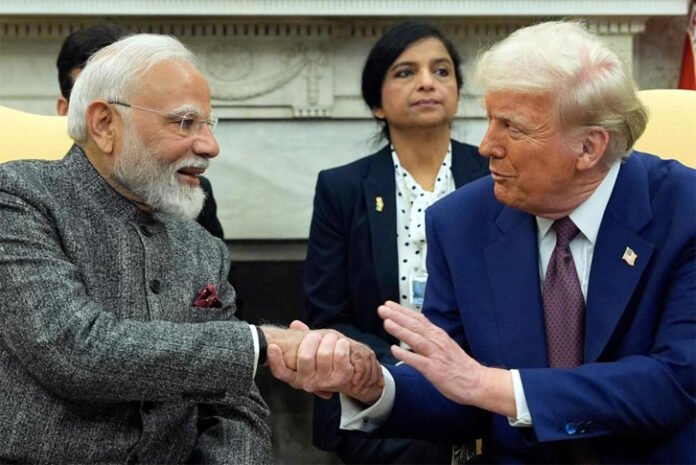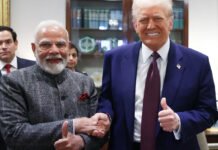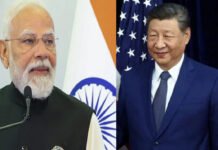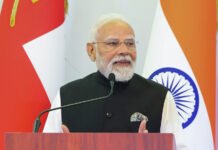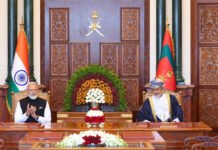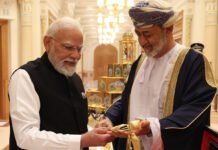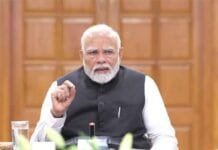New Delhi / Washington, October 22, 2025 — India is at the center of intense trade and energy discussions with the United States, as the US presses India to reduce its Russian oil imports amid ongoing international sanctions on Russia. Meanwhile, India is exploring avenues to increase US energy and natural gas imports, seeking a balance between economic needs and geopolitical realities.
“India is committed to energy security while maintaining strategic autonomy. Discussions with the US are aimed at finding mutually beneficial solutions,” said Dr. Subrahmanyam Jaishankar, India’s External Affairs Minister.
⚖️ US Pressure and India’s Position
The United States has expressed concern over India’s continued purchases of Russian crude, urging New Delhi to align with Western sanctions. Key US expectations include:
Gradual reduction of Russian oil imports
Greater transparency in energy transactions
Collaboration on alternative energy sources
India, on the other hand, maintains that its energy strategy must balance domestic demand, international pricing, and national security. Analysts note that India imports nearly 20% of its crude from Russia, making a sudden shift challenging.
“India is seeking a pragmatic approach—diversifying energy sources while maintaining affordability for domestic consumers,” said Rohit Verma, energy policy expert.
🔌 Energy Cooperation Opportunities
In the talks, India has requested increased US oil and gas supplies, highlighting opportunities for collaboration in:
Liquefied Natural Gas (LNG) imports
Renewable energy technology and infrastructure
Joint investment in energy projects, including hydrogen and solar energy
“Strategic energy cooperation benefits both nations. India secures reliable supply, and US exporters gain a growing market,” said US Secretary of Energy Maria Thompson.
The discussions also touch upon energy security frameworks to stabilize supply chains and reduce dependence on politically sensitive regions.
🌍 Geopolitical Implications
The India-US dialogue occurs amid a complex global energy landscape. Analysts highlight:
Russia remains a significant energy supplier for India, offering favorable pricing amid sanctions from the West
US-India cooperation signals a deepening strategic partnership, particularly in the Indo-Pacific region
India aims to avoid over-reliance on any single source, maintaining a diversified energy portfolio
“This is a classic example of geopolitics intersecting with economics. India navigates carefully to maintain strategic autonomy while engaging global partners,” explained Dr. Anjali Mehta, international relations scholar.
💬 Official Statements
Indian officials stressed that energy diversification is key to national security:
“Our goal is to ensure energy affordability and stability for millions of Indians. Engagement with the US is part of a broader strategy to strengthen energy resilience,” stated Dharmendra Pradhan, Minister of Petroleum and Natural Gas.
US officials acknowledged India’s growing role in the global energy market and emphasized that cooperation can strengthen bilateral trade and climate commitments.
📊 Economic & Domestic Impact
Energy imports directly affect fuel pricing, industrial growth, and economic stability in India. Analysts highlight:
Reducing Russian oil abruptly could impact domestic fuel prices
US imports may mitigate supply risks but require infrastructure expansion
Collaborative projects in renewable energy can reduce long-term dependence on fossil fuels
“Energy is the backbone of India’s economy. Strategic trade negotiations like these shape both domestic stability and international partnerships,” said Suresh Reddy, senior energy analyst.
🔮 Looking Ahead
Observers expect ongoing negotiations to focus on:
Gradual transition from Russian oil while maintaining affordability
Expansion of US energy exports to India
Development of joint renewable and green energy projects
Strengthening India-US strategic and trade partnerships
“Energy diplomacy is as much about economics as it is about geopolitics. India’s approach will remain balanced, pragmatic, and forward-looking,” said Dr. Mehta.
Conclusion:
The India-US trade talks in October 2025 underline the complex intersection of energy, diplomacy, and strategy. While the US seeks a reduction in Russian oil imports, India aims for energy security, economic stability, and strategic autonomy. These discussions highlight the evolving India-US partnership and the critical role of energy in shaping geopolitical and domestic policies.

